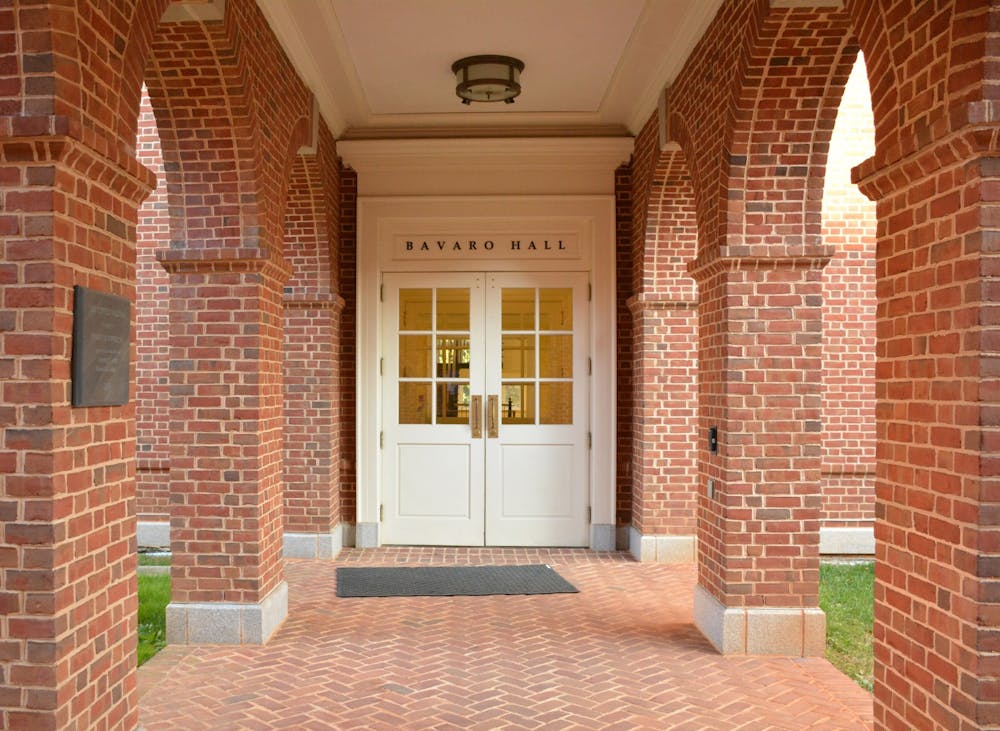The Curry School of Education and Human Development launched a website Tuesday that features information about the lives of Jabez Lamar Monroe Curry and William Henry Ruffner. Curry is the namesake of the University’s School of Education and Human Development, which is housed in Ruffner Hall. This is part of the school’s effort in reviewing the names and potentially changing them due to Curry and Ruffner’s support for slavery and white supremacist policies.
The process began over a year ago with the creation of an ad-hoc committee –– the group of 10 people that spearheaded the research process. Co-chairs Robert Berry III, a professor in the Curry School, and Susan Kools, a professor in the Nursing School and associate dean for diversity and inclusion, led the committee’s effort.
Berry is proud of the information the committee compiled into the website. He believes that the website is necessary to start a conversation that allows anyone understand Curry, Ruffner and the context of the time they lived in.
“I would argue that we have put together a pretty comprehensive website,” Berry said. “And much of the data can be found at one location, and then people can build from there to start their own research. So I think we bring together as much of those elements as possible to tell the story of these men.”
Both Curry and Ruffner were supporters of slavery in the mid to late 18th century and were members of the Southern Education Board, an organization that promoted education in the South while failing to challenge obstacles for black people such as Jim Crow laws and the disenfranchisement of black people. Berry said the goal of the project was not to provide judgment on their character.
“We were charged with doing due diligence –– meaning learning as much about Curry as well as Ruffner, about who they are and also about understanding the context,” Berry said. “So we did a large amount of research trying to find out as much about the men themselves and the context in which they lived.”
Over the past year, select students and faculty members were invited to participate in the research process. Professor Robert Pianta, Dean of the Curry School, invited the selected students by asking “the chairs of the committee and also our department chairs of the Curry School who would be … interested in this [project] and the timeline.”
The students essentially participated in an extra school project, according to Berry, with the amount of work the research required from each of the members.
“We worked hard,” Berry said. “I don't want to understate that we worked hard … And I think having a year long kind of endeavor on this helped in making sure that we're telling the story as accurate as we can with all of the primary sources. I think having the primary sources available on the website was significant. We want our process to be as transparent as possible.”
This process included visiting the Special Collections Library at U.Va. and the Virginia Library in Richmond. A desire to educate was what fueled the committee throughout the process.
“There has been conversation about the name of Ruffner Hall,” Berry said. “So the purpose and the charge was diligence and to educate the community … There was not much publicly available data about who these men were so I would say, this website serves to educate people, because people will come to the University and want to know ‘who is Curry, who is Ruffner, who are these men and what did they do?’”
Pianta noted that the website is just one step in the process to change the names. The committee’s purpose was not to provide judgment on whether the names should change. Instead, that question is open to viewers, as the website offers a reflection tab to leave comments.
“The website was launched as a part of the process of reviewing the names … And then I will sit down with the committee co-chairs and then decide whether to make a recommendation to change the name or not to the University that will review that recommendation,” Pianta said.
The reflection section is open until Dec. 4, at which point the reviews will be compiled into the growing report presented by the ad-hoc committee. Pianta hopes to issue a statement about subsequent plans for the project before the holidays.
For now, Berry has a simple request for the University community.
“I would encourage folks to look at the website because I think this is the way to assert their voices,” Berry said. “Take a look at the website, do additional research if you find it necessary, and I would encourage folks to do more research. The website is the first start.”







